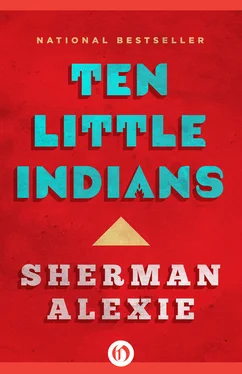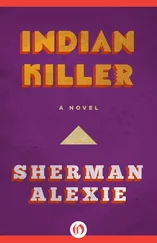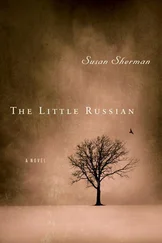“My name is Lillian, and thank you for being so honest. When your friend, or whatever he is, arrives, I’ll turn off my hearing aids so you’ll have privacy.”
Who would ever think of such an eccentric act of kindness? An old woman who owned a bookstore!
“Thank you,” Corliss said. “I’ll just look around until he gets here.”
She walked through the bookstore that smelled of musty paper and moldy carpet. She scanned the shelves and read the names of authors printed on the spines of all the lovely, lovely books. She loved the smell of new books, sure, but she loved the smell of old books even more. She thought old books smelled like everybody who’d ever read them. Possibly that was a disgusting thought, and it certainly was a silly thought, but Corliss felt like old books were sentient beings that listened and remembered and passed judgment. Oh, God, I’m going to cry again, Corliss thought, I’m losing my mind in a used-book store. I am my mother’s daughter. And that made her laugh. Hey, she thought, I’m riding in the front car of the crazy-woman roller coaster.
She knew she needed to calm down. And to calm down, she needed to perform her usual bookstore ceremony. She found the books by her favorite authors — Whitman, Shapiro, Jordan, Turcotte, Plath, Lourie, O’Hara, Hershon, Alvarez, Brook, Schreiber, Pawlak, Offutt, Duncan, Moore — and reshelved them with their front covers facing outward. The other books led with their spines, but Corliss’s favorites led with their chests, bellies, crotches, and faces. The casual reader wouldn’t be able to resist these books now. Choose me! Choose me! The browser would fall in love at first sight. Corliss, in love with poetry, opened Harlan Atwater’s book and read one more sonnet:
Poverty
When you’re poor and hungry
And love your dog
You share your food with him.
There is no love like his.
When you’re poor and hungry
And your dog gets sick,
You can’t afford to take him
To the veterinarian,
So you have to watch him get sicker
And cough blood and cry all night.
You can’t afford to put him gently to sleep
So your uncle comes over for free
And shoots your dog twice in the head
And buries him in the town dump.
How could he know such things about poverty and pain if he had not experienced them? Can a poet be that accomplished a liar? Can a poet invent history so well that his audience is completely fooled? Only if they want to be fooled, thought Corliss, knowing she was exactly that kind of literate fool. For her, each great book was the Holy Bible, and each great author was a prophet. Oh, God, listen to me, Corliss thought, I’m a cult member. If Sylvia Plath walked into the bookstore and told her to drink a glass of cyanide-laced grape juice, Corliss knew she would happily do it.
Precisely on time, Harlan Atwater opened the door and stepped into the bookstore. He’d obviously showered and shaved, and he wore a navy blue suit that had fit better ten years and twenty pounds earlier but still looked decent enough to qualify as formal wear. He’d replaced his big clunky glasses with John Lennon wire frames. Corliss felt honored by Harlan’s sartorial efforts and was once again amazed by Lillian as she smiled and turned off her hearing aids.
“You look good,” Corliss said to Harlan.
“I look like I’m trying to look good,” he said. “That’s about all I can do right now. I hope it’s enough.”
“It is. Thank you for trying.”
“Well, you know, it’s not every day I’m the object of a vision quest.”
“Everything feels new today.”
He smiled. She didn’t know what he was thinking.
“So,” he said. “Do you want to hear my story?”
“Yes.”
He led her to a stuffed couch in the back of the store. They sat together. He stared at the floor as he talked.
“I’m not really a Spokane Indian,” he said.
She knew it! He was a fraud! He was a white man with a good tan!
“Well, I’m biologically a Spokane Indian,” he said. “But I wasn’t raised Spokane. I was adopted out and raised by a white family here in Seattle.”
That explained why he knew so much about Spokane Indians but remained unknown by them.
“You’re a lost bird,” she said.
“Is that what they’re calling us now?”
“Yes.”
“Well, isn’t that poetic? I suppose it’s better than calling us stolen goods. Or clueless bastards.”
“But your poems, they’re so Indian.”
“Indian is easy to fake. People have been faking it for five hundred years. I was just better at it than most.”
She knew Indians were obsessed with authenticity. Colonized, genocided, exiled, Indians formed their identities by questioning the identities of other Indians. Self-hating, self-doubting, Indians turned their tribes into nationalistic sects. But who could blame us our madness? Corliss thought. We are people exiled by other exiles, by Puritans, Pilgrims, Protestants, and all of those other crazy white people thrown out of a crazier Europe. We who were once indigenous to this land must immigrate into its culture. I was born one mile south and raised one mile north from the place on the Spokane River where the very first Spokane Indian was ever born, and I somehow feel like a nomad, so Harlan Atwater must feel completely lost.
“Maybe you’re faking,” she said. “But the poems aren’t fake.”
“Do you write?” he asked.
“Only academic stuff,” she said. “I’m kind of afraid of writing poems.”
“Why?”
“No matter what I write, a bunch of other Indians will hate it because it isn’t Indian enough, and a bunch of white people will like it because it’s Indian. Do you know what I mean? If I wrote poems, I’d feel trapped.”
Harlan had been waiting for years to talk about his traps.
“I started writing poems to feel like I belonged,” he said. “To feel more Indian. And I started imagining what it felt like to grow up on the reservation, to grow up like an Indian is supposed to grow up, you know?”
She knew. She wasn’t supposed to be in college and she wasn’t supposed to be as smart as she was and she wasn’t supposed to read the books she read and she wasn’t supposed to say the things she said. She was too young and too female and too Indian to be that smart. But I exist, she shouted to the world, and my very existence disproves what my conquerors believe about this world and me, but since my conquerors cannot be contradicted, I must not exist.
“Harlan,” she said. “I don’t even know what Indian is supposed to be. How could you know?”
“Well, that’s the thing,” he said. “I wrote those poems because I wanted to know. They weren’t statements of fact, I guess. They were more like questions.”
“But Harlan, that’s what poetry is for. It’s supposed to be about questions, about the imagination.”
“I know, I know. The thing is, I mean, I started reading these poems, asking these questions, around town, you know? At the coffee shops and bookstores and open-mike nights. Late sixties, early seventies, shoot, it was a huge time for poetry. People don’t remember it like that, I guess. But poetry was huge. Poets were rock stars. And I was, like, this local rock star, you know? Like a garage-band poet. And people, white people, they really loved my poems, you know? They looked at me onstage, looking as Indian as I do, with my dark skin and long hair and big nose and cheekbones, and they didn’t know my poems were just pretend. How could they know? Shoot, half the white people in the crowd thought they were Indian, so why were they going to question me?”
Читать дальше












